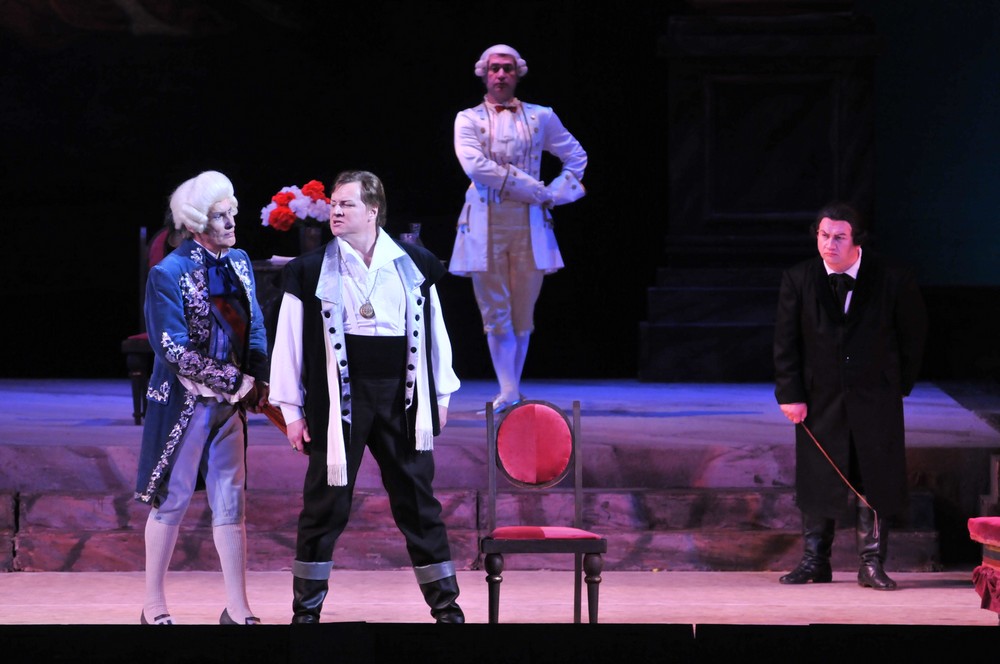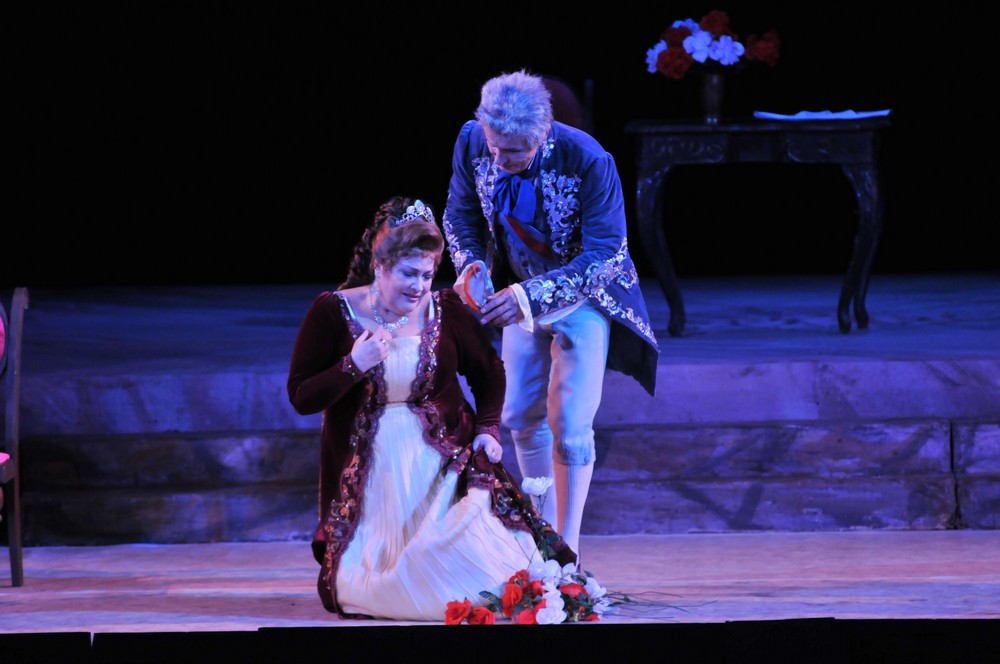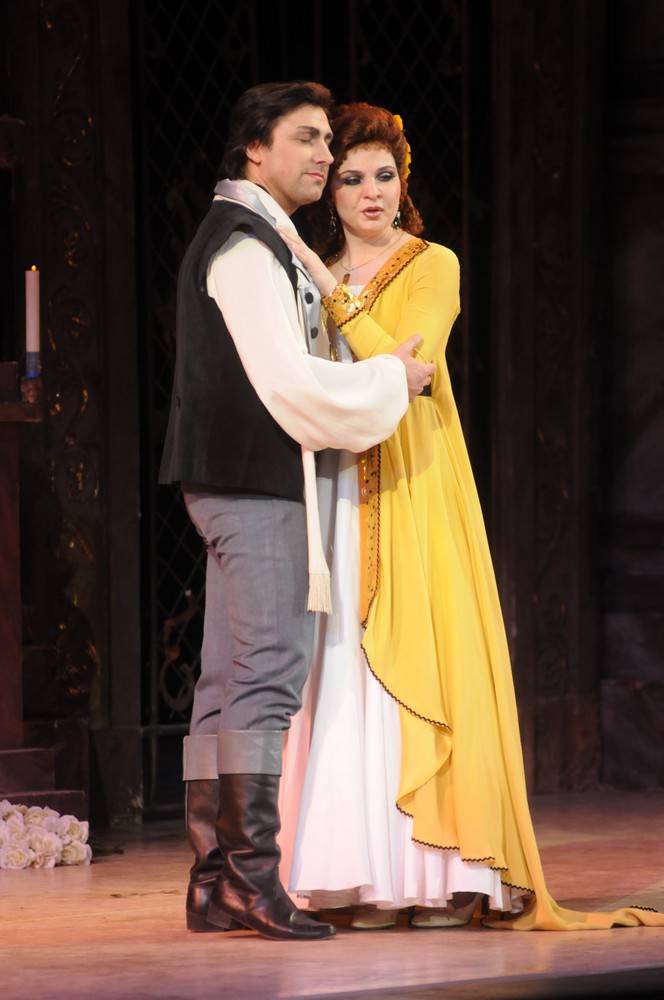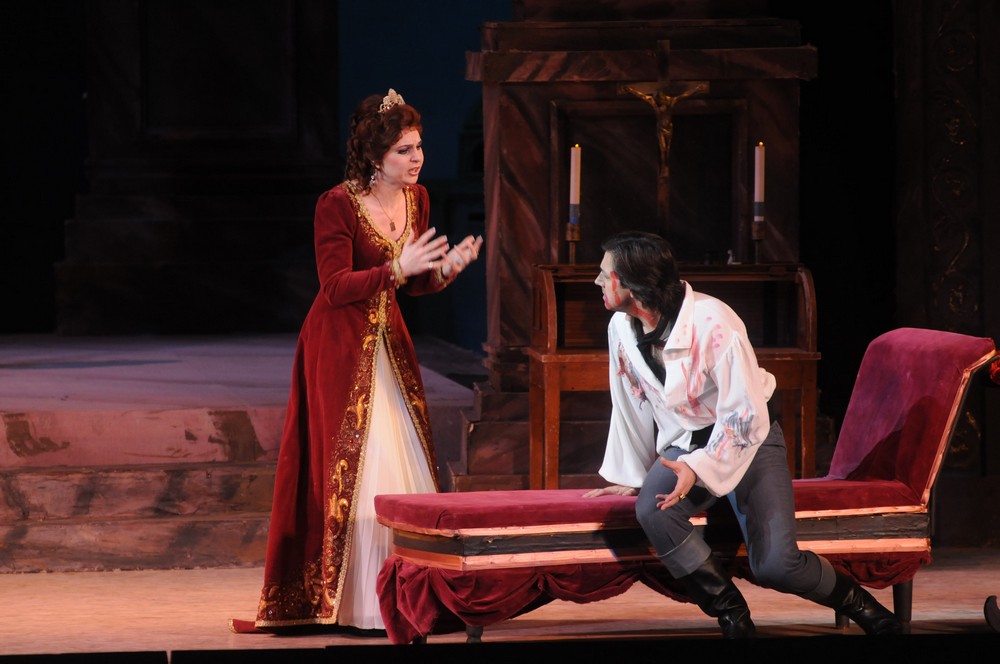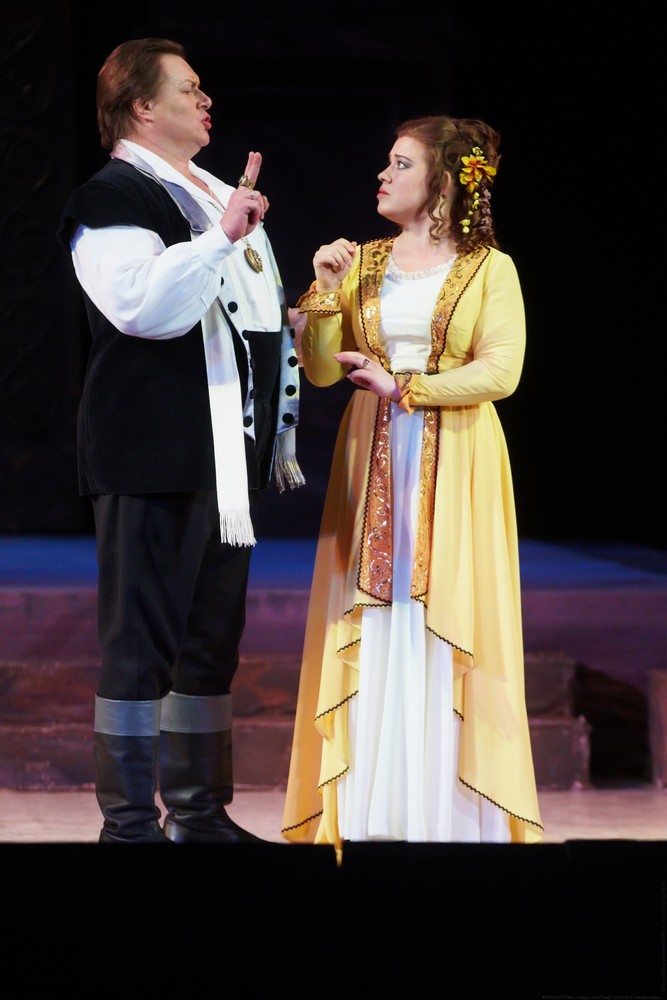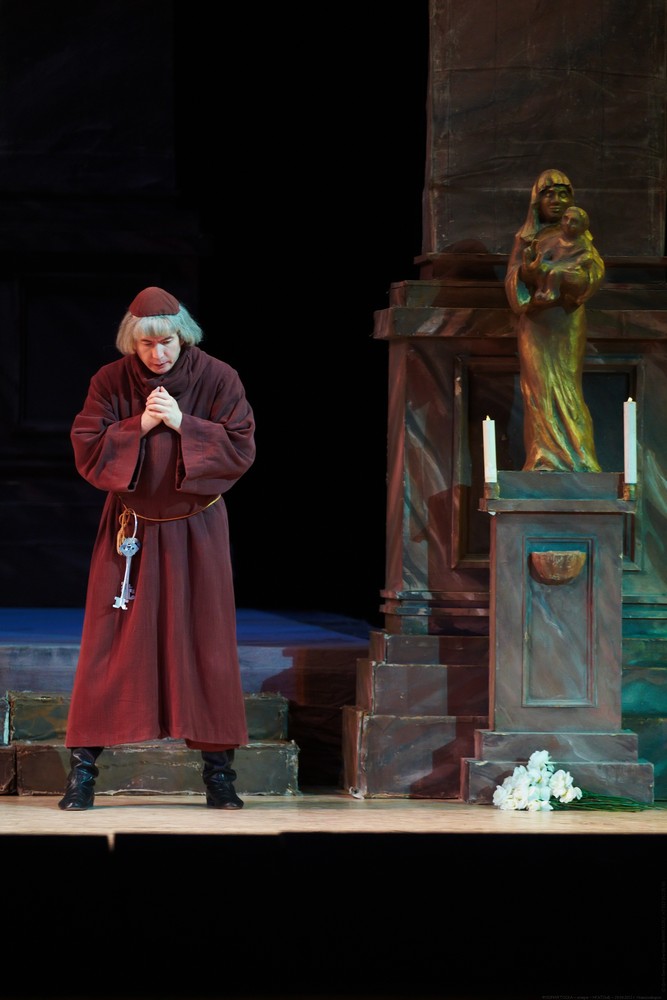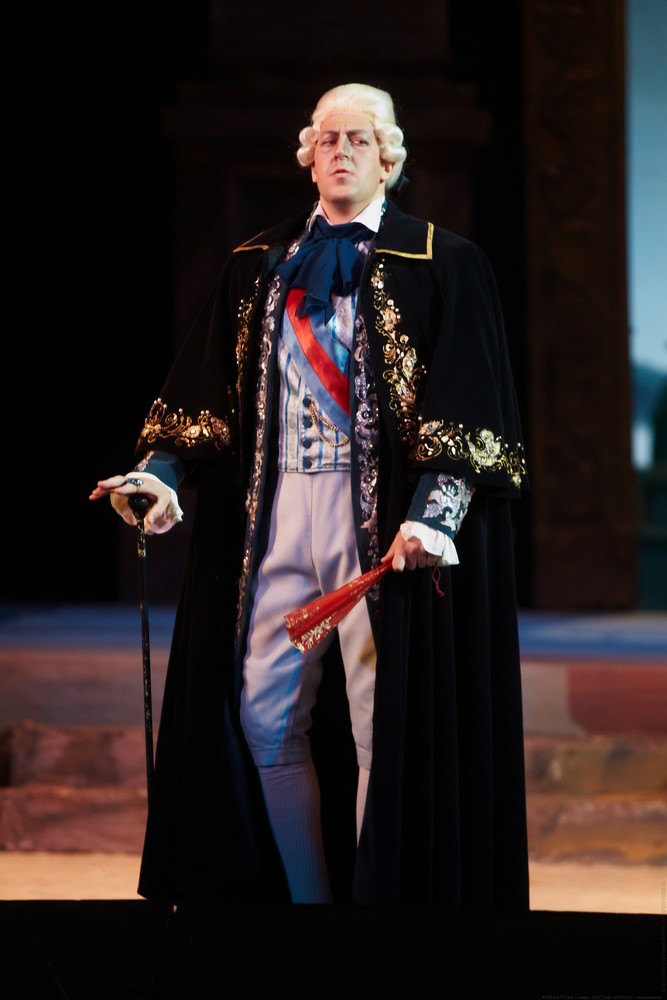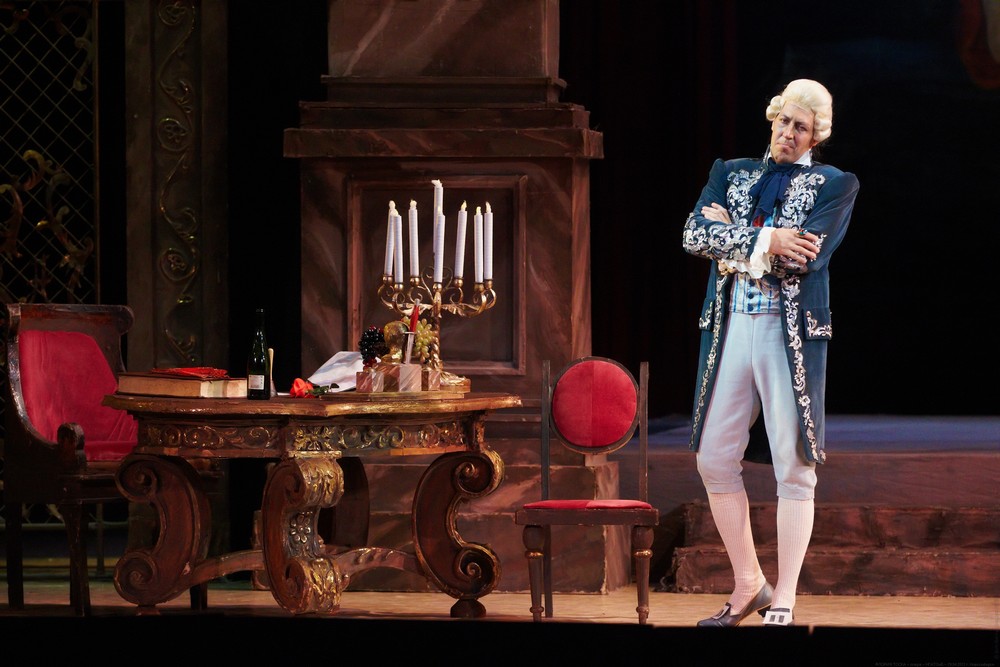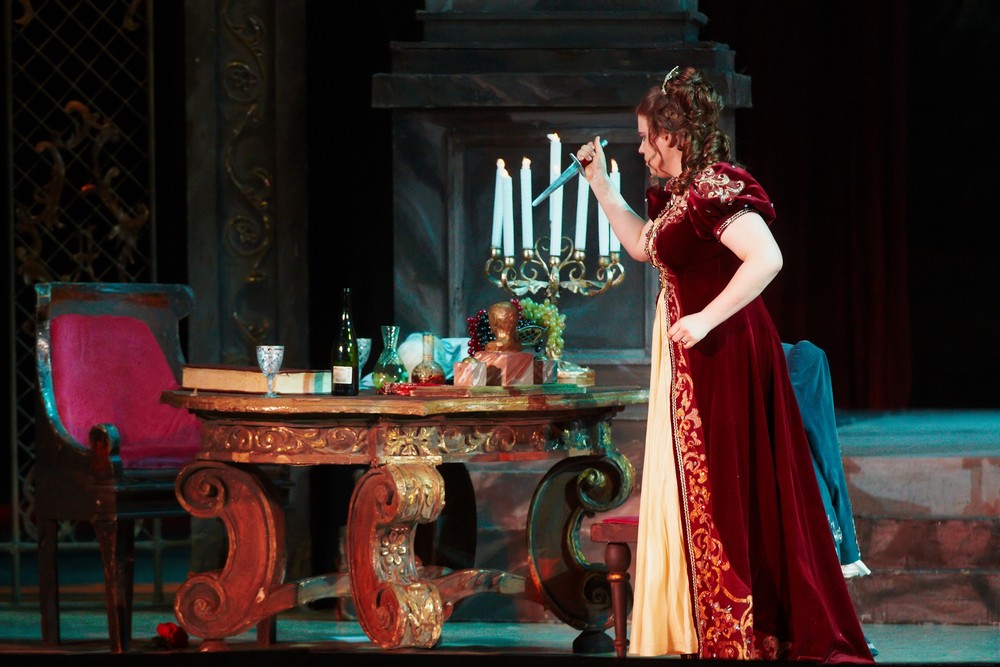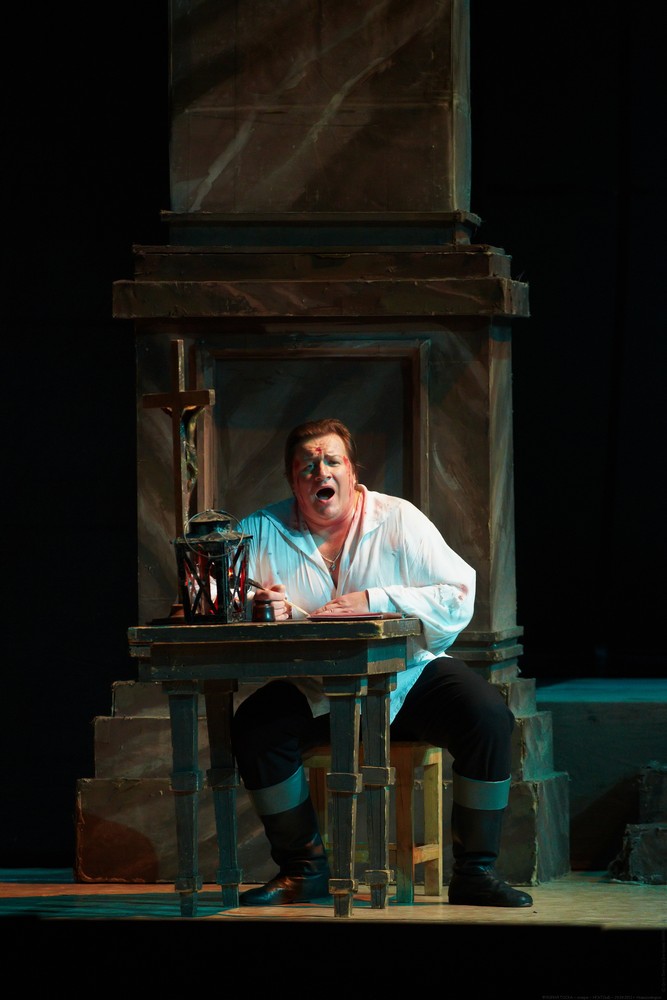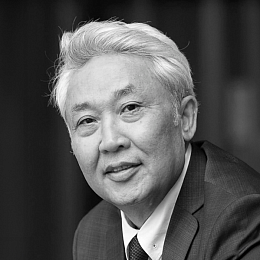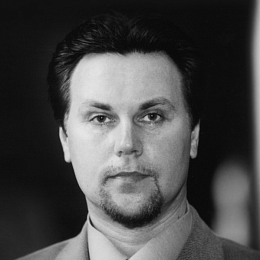hall
Artists
Credits
Libretto by Luigi Illica and Giuseppe Giacosa after the play of the same name by Victorien Sardou
Musical Director and Conductor: Pyotr Belyakin
Stage Director: Irkin Gabitov
Stage Designer: Vyacheslav Okunev
Principal Chorus Master: Vyacheslav Podyelsky
Chorus Master: Sergey Tenitilov
Chorus Master of the children’s choir: Margarita Mezentseva
2 hours 45 minutes
two intervals
performed in Italian (with Russian surtitles)
Première of the production: 8 December 1991
The production was shown on tour to Lisbon (Portugal, 1996) and Busan (South Korea, 2001)
Italy, love, art... She is a famous singer, he is an artist, they are tipped to have a happy union but politics and police invade the lovers’ fate... Ebullition of passions, spectacular plot and great music met in one of the most famous operas by Giacomo Puccini.
Synopsis
Rome, 1800. The short-lived Republic has fallen. The defenders of liberty are cast to prison in Castel Sant’Angelo. The rule of reaction reigns in Rome. The French troops led by consul Bonaparte entered Italy. The Italian patriots believe that Bonaparte will bring freedom and peace to their long-suffering nation.
Act I
Early in the morning Angelotti runs into the empty church. The former Consul of the Roman republic escaped from prison in Castel Sant’Angelo. His sister, the Marchesa Attavanti, left him a key to the family chapel, where he can hide and change his clothes.
The painter Mario Cavaradossi is painting the church. Last night he noticed a parishioner, who was passionately praying to Madonna, and Mary Magdalene in his painting acquired the features of the woman. Angelotti carelessly left the chapel and interrupted the painters’ work. Cavaradossi doesn’t hesitate to promise his help to Angelotti, but they hear the voice of Floria, Cavaradossi’s beloved, and Angelotti hurries to hide in the chapel.
Floria Tosca is a renowned singer, she is Rome’s sweetheart. She has heard somebody’s steps and is sure that there has been a woman. Mario calms her down. Tonight they will go to their little house.
Suddenly Tosca recognizes the features of the Marchesa Attavanti in Magdalena. There is a new fit of jealousy: Tosca asks to make the eyes of Madonna not blue, but black — like hers. Cavaradossi swears his love and fidelity. Tosca leaves, at last.
Cavaradossi gives Angelotti the key to his house and reveals a secret hideaway in the well. The cannon shot from the towers signals that Angelotti’s escape has been discovered. It’s dangerous to stay here, and they leave the chapel through a secret passage.
The sacristan tells the choirmen the joyful news: Bonaparte has been defeated, and late in the evening there will be a celebration at Palazzo Farnese. Tosca will sing a cantata there, too.
Suddenly, Baron Scarpia, the chief of secret police, who intimidates the citizens of Rome, arrives. Spoletta and other policemen are searching the church, Scarpia interrogates the sacristan and finds the evidence that Angelotti has been here and Cavaradossi has helped him to escape.
Tosca comes in very handy. She will sing the cantata tonight and it means that she will not see Mario. Scarpia shows Tosca a hand fan with the coat of arms of the Attavanti, dropped by Angelotti, as a proof of Cavaradossi’s unfaithfulness. Tosca is enraged, she decides to get the proof of his unfaithfulness herself. Scarpia sends the policemen to follow her in order to find out where Angelotti hides.
The church is getting filled with people, the service begins. Scarpia only thinks about Tosca: he must have her.
Act II
Scarpia’s study in Palazzo Farnese. A gavotte, then a solemn cantata are heard from the king’s chambers. He sends a servant to give a note to Tosca to invite her to come to his place when she finishes with her recital. Spoletta reports in fear that they haven’t found Angelotti in Cavaradossi’s house, but they have arrested Cavaradossi — just to be safe.
Cavaradossi refuses to answer Scarpia’s questions and manages to whisper to Tosca not to say anything about Angelotti. Scarpia sends Cavaradossi off to be tortured. Tosca can’t stand his sufferings; she loses her self-control and reveals the secret hiding place of Angelotti.
The torture is over, but Mario is sentenced to death. Scarpia stays together with Tosca. He agrees to make a deal, but the price of Mario’s life is Tosca’s love. In Tosca’s presence, he orders Spoletta to mock the execution and to shoot blanks. Tosca doesn’t understand Scarpia’s foul play. She is asking for a pass that will allow her and Mario to leave Rome. Suddenly she sees a knife on the table. Tosca kills Scarpia, who is heading to her, and leaves the study.
Act III
A landing on the tower of Castel Sant’Angelo. Dawn breaks. Mario is to be executed at 4 a.m. He is thinking of Tosca. She appears on the landing. She has a pass to leave Rome. She has killed the terrible Scarpia. Only the mock execution is left. But Cavaradossi understands that it’s all over. Even the dead Scarpia is dangerous. Tosca teaches him to fall as true-to-life, as she does on stage. Mario bids farewell to his beloved. A cannon shot is heard. Tosca is fascinated by Mario’s acting. He must not get up, while the soldiers are around. Everybody has left. Now Tosca sees that Mario is dead. She doesn’t have a reason to live. Tosca throws herself from the parapet.
